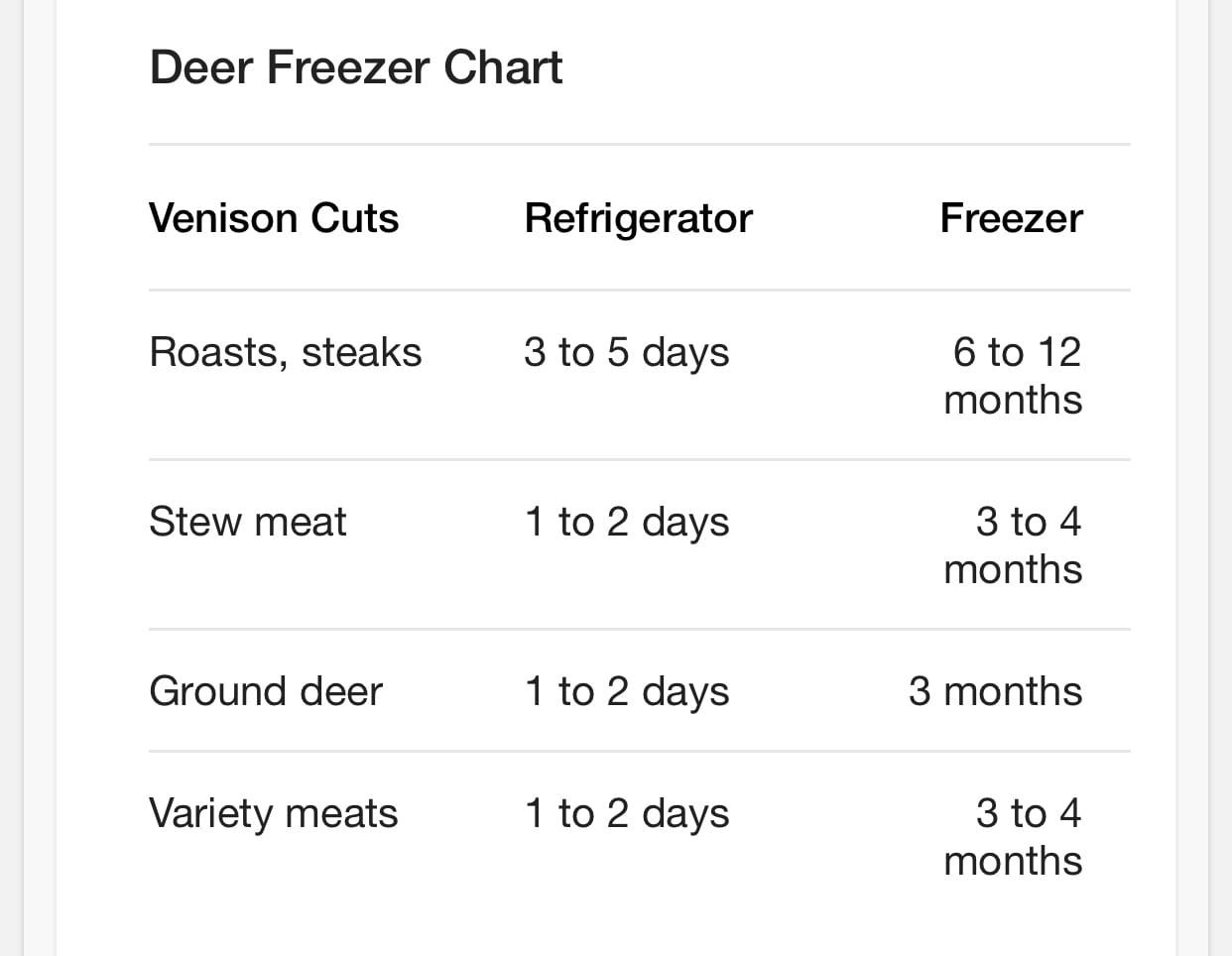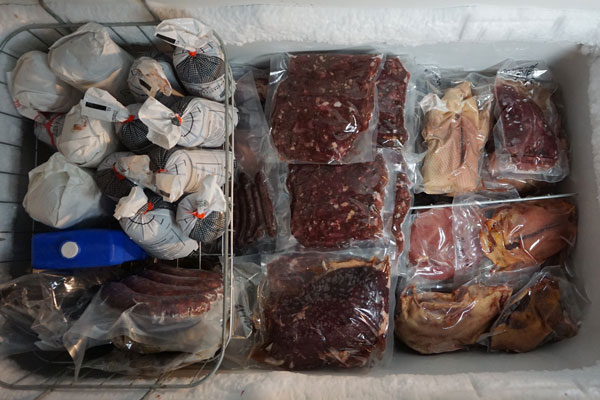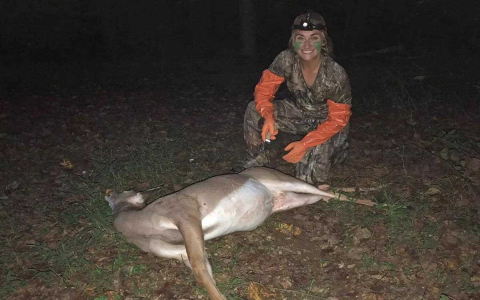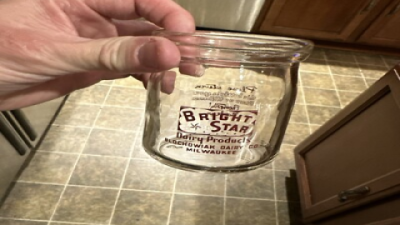Freezing deer meat is a common practice among hunters and venison enthusiasts looking to preserve their harvest and enjoy it long after the hunting season ends. But a question that often arises is: how long will deer meat keep in the freezer while maintaining its quality and safety?
In this ultimate guide, we’ll explore the science behind freezing venison, best storage practices, how to tell if frozen deer meat has gone bad, and practical tips to maximize shelf life. We’ll also share real-life cases and answer frequently asked questions to help you confidently store and enjoy your deer meat.
Why Freezing Deer Meat Is Essential
Deer meat, or venison, is leaner than beef and pork, which means it can dry out or develop freezer burn more easily if not stored properly. Freezing slows down the enzymatic and microbial processes that cause spoilage, effectively preserving the meat’s freshness, flavor, and nutritional value.

Key point: Freezing does not kill bacteria but puts them in a dormant state. Once thawed, proper handling is crucial to avoid foodborne illness.
How Long Does Deer Meat Last in the Freezer?
The length of time deer meat can be stored in the freezer depends on several factors including packaging, freezer temperature, and the cut of meat. Here is a general guideline:
| Type of Deer Meat | Recommended Freezer Storage Time | Notes |
|---|---|---|
| Steaks and Roasts | to months | Keep vacuum-sealed or tightly wrapped to prevent freezer burn |
| Ground Venison | to months | More prone to oxidation; use airtight packaging |
| Cooked Venison | to months | Store in airtight containers or heavy-duty freezer bags |
| Venison Jerky | Up to year | Lower moisture content extends shelf life |
Note: These times assume the freezer is kept at a consistent 0°F (-18°C) or below.
Factors Influencing Deer Meat Freezer Life
- Packaging: Vacuum sealing is the gold standard, removing air that causes freezer burn and oxidation.
- Freezer Temperature: Fluctuating temperatures shorten shelf life. A dedicated deep freezer is ideal.
- Initial Meat Quality: Meat frozen quickly after harvest and properly butchered lasts longer.
- Cut Type: Leaner cuts freeze better than fatty ones, which can develop rancidity.
How to Properly Freeze Deer Meat
Follow these steps to maximize the shelf life and quality of your frozen venison:
- Cool the Meat Quickly: After butchering, refrigerate or freeze the meat as soon as possible to prevent bacterial growth.
- Trim Excess Fat: Fat can become rancid in the freezer, so trim off large fat deposits.
- Portion the Meat: Divide into meal-sized portions to avoid repeated thawing and refreezing.
- Use Vacuum Sealing or Wrap Tightly: Use vacuum sealers or wrap tightly with plastic wrap followed by aluminum foil.
- Label and Date: Always label packages with the date frozen to track storage time.
- Freeze at 0°F (-18°C) or Lower: Maintain a stable temperature to preserve quality.
Signs Your Frozen Deer Meat Has Gone Bad
Even frozen meat can degrade over time. Watch for these signs before cooking:
- Freezer Burn: Dry, grayish-white spots indicate dehydration but are safe to eat if trimmed.
- Off Odor: Sour or rancid smell after thawing means spoilage.
- Color Changes: Brown or greenish hues suggest oxidation or bacterial growth.
- Texture: Slimy or sticky texture after thawing is a red flag.
Real Case: A Hunter’s Experience with Freezing Venison
Mark, an avid hunter from Montana, shares his story: “I used to freeze whole quarters of deer in large plastic bags. After about months, I noticed freezer burn and the meat lost its flavor. Then I switched to vacuum sealing individual steaks and ground meat. Now my venison stays fresh for up to a year, and the taste is much better.”
Mark’s experience highlights how packaging and portioning can dramatically affect freezer life and eating quality.
Tips to Thaw Deer Meat Safely
Proper thawing is as important as freezing. Here are recommended methods:
- Refrigerator Thawing: Place meat in the fridge for 24- hours depending on size. This is safest and maintains quality.
- Cold Water Thawing: Submerge sealed meat in cold water, changing water every minutes. Faster but requires attention.
- Microwave Thawing: Use only if cooking immediately after thawing to avoid bacterial growth.
Frequently Asked Questions (FAQ)
Can you refreeze deer meat after thawing?
It’s best to avoid refreezing thawed meat unless it was thawed in the refrigerator and hasn’t been left out at room temperature. Repeated freezing and thawing degrade texture and safety.
Does freezing kill parasites in deer meat?
Freezing at standard home freezer temperatures may not kill all parasites. Cooking venison to a safe internal temperature (at least 160°F/71°C) is necessary to ensure safety.

What is the best cut of deer meat for freezing?
Steaks and roasts freeze well due to their thickness and lower surface area exposure. Ground venison is more perishable and should be used sooner.
How do I prevent freezer burn on deer meat?
Vacuum sealing is the most effective way. If unavailable, wrap tightly with multiple layers of plastic wrap and foil, and minimize air exposure.
Is frozen venison as nutritious as fresh?
Yes, freezing preserves most nutrients if done properly. However, prolonged storage can cause slight loss of vitamins.
Summary Table: Deer Meat Freezing Best Practices
| Step | Action | Reason |
|---|---|---|
| 1 | Cool meat quickly after butchering | Prevents bacterial growth |
| 2 | Trim excess fat | Reduces rancidity risk |
| 3 | Portion into meal sizes | Avoids repeated thawing/refreezing |
| 4 | Vacuum seal or wrap tightly | Prevents freezer burn and oxidation |
| 5 | Label and date packages | Tracks storage time |
| 6 | Freeze at 0°F (-18°C) or below | Maintains quality and safety |
Final Thoughts
Freezing deer meat is a reliable way to preserve your harvest, but knowing how long deer meat lasts in the freezer and how to store it properly makes all the difference in taste, texture, and safety. By applying best practices like vacuum sealing, portioning, and maintaining a consistent freezer temperature, you can enjoy delicious venison for up to a year or more.
Have you ever experienced freezer burn or spoilage with your venison? What tips or tricks have worked best for you? Share your thoughts and stories below!



